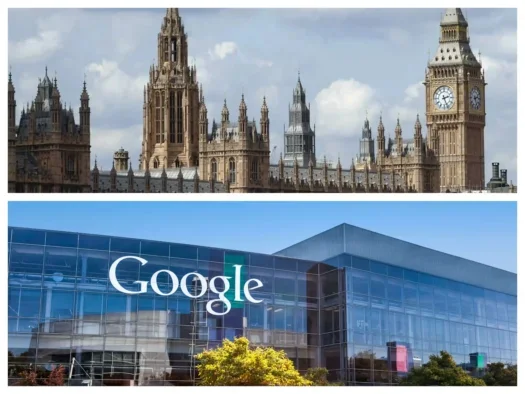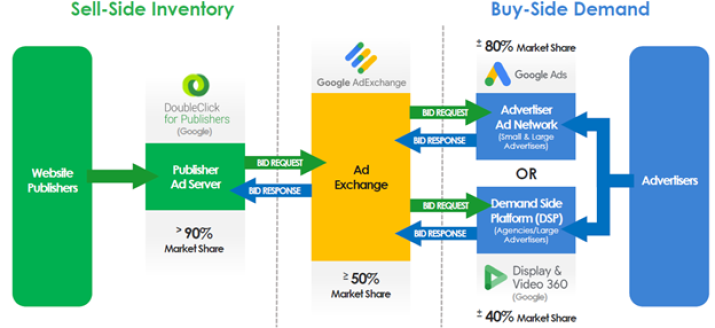
The UK’s competition watchdog has launched an investigation into Google‘s search services, beginning a process that may ultimately see the tech giant regulated under the Digital Markets, Competition and Consumers Act.
The act, which came into force on 1 January, empowers the Competition and Markets Authority to impose conduct requirements on companies found to have “strategic market status”, for example by compelling them to pay for news content that appears on their platforms or provide greater information to users about service changes.
If a company with strategic market status is found to have abused its market position the CMA can fine it 10% of its global annual turnover. The investigation announced on Tuesday morning into Google search is the first under the new regulatory regime.
The CMA said the investigation “will assess Google’s position in search and search advertising services and how this impacts consumers and businesses including advertisers, news publishers, and rival search engines…
“The CMA’s investigation will assess whether Google has SMS [strategic market status] in the UK search and search advertising sectors and, in parallel, consider whether conduct requirements should be imposed in the event of a final designation decision.”
The regulator will assess whether Google has been using publisher content “without fair terms and conditions (including payment terms)”, whether it “is using its position to prevent innovation by others” by boxing competitors out of the market and whether the search engine “is using its position in the market to self-preference its own services”.
Owen Meredith, chief executive of the News Media Association which represents the UK’s news industry, said News Media Association chief executive Owen Meredith said: “We are very pleased that the CMA has recognised the critical importance of proceeding with an investigation into Google Search as its top priority.
“Google Search is a critically important gateway for the public to access a huge variety of businesses and services including trusted news and journalism which is more important today than ever. Yet, despite its enormous power and the profound impact it can have on other businesses such as news publishers, the workings of Google Search are largely opaque.”
[Read more: Digital Markets Bill passed paving way for publisher ‘level playing field’ with big tech]
CMA will decide whether Google should have strategic market status this year
The investigation must be completed within nine months with a decision published by 13 October. The CMA said it is soliciting evidence from stakeholders “including advertising firms, news publishers and user groups” as well as Google itself.
Sarah Cardell, chief executive of the CMA, said “Millions of people and businesses across the UK rely on Google’s search and advertising services – with 90% of searches happening on their platform and more than 200,000 UK businesses advertising there. That’s why it’s so important to ensure these services are delivering good outcomes for people and businesses and that there is a level playing field, especially as AI has the potential to transform search services.
“It’s our job to ensure people get the full benefit of choice and innovation in search services and get a fair deal – for example in how their data is collected and stored. And for businesses, whether you are a rival search engine, an advertiser or a news organisation, we want to ensure there is a level playing field for all businesses, large and small, to succeed.”
In September the CMA published a provisional finding that Google had abused its dominant position in the digital ad market to restrict competition. The US Justice Department has similarly argued that Google “thwarted meaningful competition” through monopolistic control of the technologies by which digital ads are sold and bought.

News publishers have long complained that these alleged practices harm them by cutting into the prices they can command from selling ad inventory, and that changes to the Google search ranking algorithm can cause abrupt damage to their referral traffic.
Many publishers also say that the referral traffic they receive from platforms like Google search and Meta’s Facebook is inadequate compensation for the costs associated with producing the professional news content that feeds big tech platforms. This has become a particular point of contention with the widespread adoption of generative AI, which aims to answer queries without a user having to click through to a publisher website.
Australia and Canada have each introduced laws that compel tech giants found to meet certain criteria to negotiate with news publishers over a fair value to be paid for their content.
[Read more: What Google’s C$100m payout to Canada news industry means for publishers elsewhere]
The post CMA to investigate Google search dominance and impact on news publishers appeared first on Press Gazette.





























